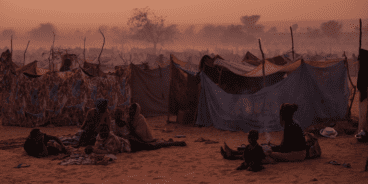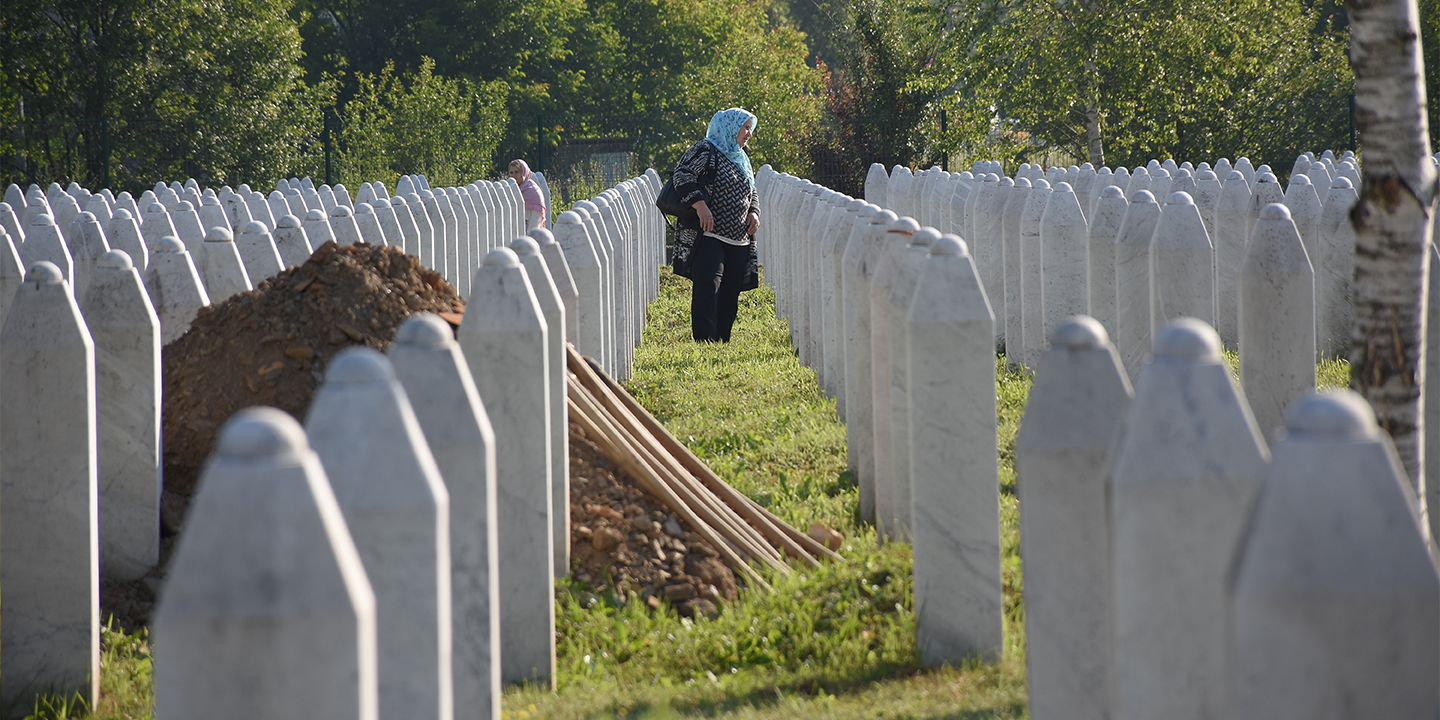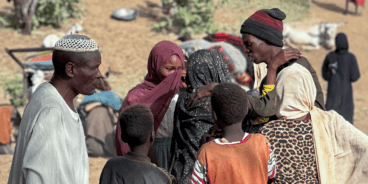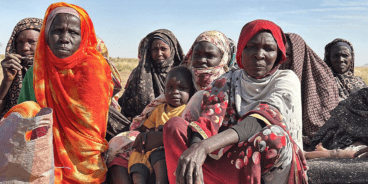

Statement on Genocide Prevention and Awareness Month, 2023
Each year during April the Global Centre for the Responsibility to Protect solemnly observes Genocide Prevention and Awareness Month, marking the grim anniversaries of the start of several genocides in the past century. This month of commemoration is a time to honor all the victims and survivors of past atrocity crimes not only by remembering, but by redoubling our efforts and commitment to “Never Again” for those around the world today who remain at risk of these unconscionable crimes. Memorialization of genocide and its victims is an essential part of atrocity prevention.
On 6 April the siege of Sarajevo began during the Bosnian War. For nearly four years the Bosnian Serb Army besieged the city and subjected the population to heavy bombardment and shelling, killing more than 11,000 people. Atrocities were perpetrated throughout the Bosnian War, including ethnic cleansing campaigns, systematic mass rape and the 1995 genocide in Srebrenica.
On 7 April the international community commemorates the 29th anniversary of the start of the 1994 genocide against the Tutsi in Rwanda. Over the course of a 100-day period between April and July approximately one million Rwandans were murdered in the fastest genocide of the twentieth century. Despite clear and credible warnings from those within Rwanda, the United Nations and its member states failed to take timely and decisive action to prevent the impending genocide.
On 17 April 1975 the “Khmer Rouge” seized power in Cambodia, where they used state authority to perpetrate a genocide. All Cambodians were deprived of their basic human rights and those deemed “enemies of the people” were murdered in the notorious “killing fields.” The Khmer Rouge also systematically targeted minority religious and ethnic communities for destruction. An estimated 1.7 million Cambodians lost their lives, but political divisions amongst the permanent members of the UN Security Council meant that the world largely ignored these crimes until after the Khmer Rouge were overthrown in January 1979.
Starting on 24 April 1915 over one million Armenians living under Ottoman Empire rule were targeted and killed during mass deportations. Armenian property and cultural institutions were pillaged, while thousands of women were abducted and forced into religious conversion. The systematic attempt to destroy the Armenian people was genocide.
Throughout April we also commemorate the liberation of several major Nazi concentration camps during 1945, including Buchenwald, Dachau, Dora-Mittlebau, Flossenbürg and Bergen-Belsen. During the Holocaust, Nazi Germany and its allies systematically persecuted and murdered six million Jews, large numbers of whom were detained and exterminated in concentration camps.
As we approach the 75th anniversary of the adoption of the Convention on the Prevention and Punishment of the Crime of Genocide, these anniversaries serve as reminders from history that the world should no longer tolerate political indifference and inaction whenever and wherever populations face an imminent risk of genocide and other mass atrocity crimes. As we observe this Genocide Prevention and Awareness Month, populations around the world continue to face the threat of genocide and other mass atrocity crimes not for anything they have done, but for who they are. It is for this reason that the relentless and consistent implementation of the Responsibility to Protect is more important than ever.
We hope that during this Genocide Prevention and Awareness Month member states recommit to upholding their enduring moral and political responsibility to protect the world’s most vulnerable populations and take timely and effective action wherever and whenever atrocity crimes are threatened. This solemn responsibility must be upheld with consistency, courage and without exception.
Related Content


Atrocity Alert No. 435: Sudan, Israel and the Occupied Palestinian Territory and Democratic Republic of the Congo
